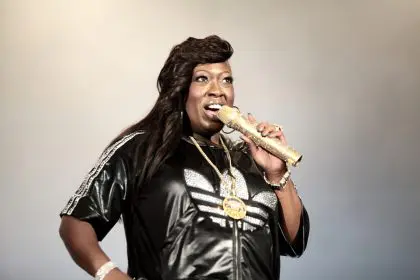Sean ‘Diddy’ Combs’ former personal assistant was tasked with cleaning the rapper’s hotel rooms in order to “protect” him. This testimony comes as part of one of the most high-profile celebrity trials in recent years, drawing significant media attention worldwide.
George Kaplan took to the witness stand in the Bad Boy Records founder’s sex crimes trial in New York on Wednesday (21.05.25) and testified that he was threatened with dismissal on a monthly basis and worked 80-100 hour weeks for $125,000 a year. Employment law experts note that such working conditions could constitute labor violations under federal guidelines, which typically require overtime compensation for extended work periods.
The witness – who spent two years working for Combs Enterprises and 15 months as one of his personal assistants – told how Combs had a “hotel bag” containing clothes, a speaker, candles, alcohol, baby oil and lubricant, which he had to “recreate”. This detailed testimony provides unprecedented insight into the private operations of one of hip-hop’s most influential figures.
During his testimony, George, 34, said Diddy “would have guests” in his suites, often a “female partner” and once his stay was over, he would enter the rooms to find “lots of empty bottles” and baby oil “on the table, on the floor, on the bed.” He told the court that on one occasion, he had seen a crystallized powder on the bathroom sink. Such evidence suggests a pattern of activities that prosecutors allege were part of a larger criminal enterprise.
“I tidied them. I made it as close as I could to the way it was found when he came in,” he said when describing his cleaning duties. The meticulous nature of these cleanup operations indicates the systematic approach allegedly used to conceal evidence of illegal activities.
Asked why he cleaned up instead of asking hotel staff, he replied: “I think that it was implied in the role as you continued to work closely with Mr. Combs that you protected him… I would see often that hotels would sell videos and images and try and embarrass celebrities and other figures and that was something I wanted to avoid.” The entertainment industry has long struggled with privacy breaches, making discretion a valuable commodity for high-profile individuals.
George claimed his then-boss had asked him to procure drugs on two occasions. Such allegations, if proven true, could add additional federal charges to an already complex legal case involving multiple jurisdictions and potential co-conspirators.
Of one, in Miami, he said: “He gave me a number to call and some cash to pick up what he wanted. The guy came and I paid him for drugs.” He testified it was a bag of MDMA that he gave to the rapper. MDMA remains a controlled substance with severe federal penalties for possession and distribution.
The second time was at the Bel-Air Hotel in Los Angeles. He said: “It was a very similar exchange. Call this number, meet this person, bring this back to me. I arranged to meet the person in Hollywood. I gave him money. He gave me a bag. I didn’t know what the bag was. I gave it to Mr. Combs.” Such testimony could potentially implicate the defendant in drug trafficking charges, which carry substantial prison sentences under federal law.
Before taking the stand, George was granted immunity from prosecution as he had reportedly indicated he would invoke his Fifth Amendment right, which would have allowed him to avoid questions that could implicate him. Immunity agreements are commonly used in high-profile cases to secure cooperation from witnesses who might otherwise remain silent to protect themselves.
He will continue his testimony in court on Thursday (22.05.25) and will be followed on the witness stand by rapper Kid Cudi. The inclusion of celebrity witnesses indicates the far-reaching impact of this case within the entertainment industry, potentially affecting numerous high-profile figures and their business relationships.
Diddy has pleaded not guilty to charges of racketeering, sex trafficking by force, fraud or coercion and transportation to engage in prostitution. These federal charges represent some of the most serious criminal allegations that can be brought against an individual, with potential consequences that could fundamentally alter the defendant’s life and career.
The trial has garnered international attention, with legal experts noting the complexity of the charges and the potential precedent it could set for similar cases involving entertainment industry figures. Federal prosecutors have indicated they possess substantial evidence spanning multiple years and jurisdictions.
The case has also highlighted broader issues within the entertainment industry regarding power dynamics, employee treatment, and the culture surrounding celebrity management. Industry observers suggest this trial could lead to significant changes in how personal staff are treated and protected within the entertainment business, potentially establishing new standards for workplace safety and legal compliance.














